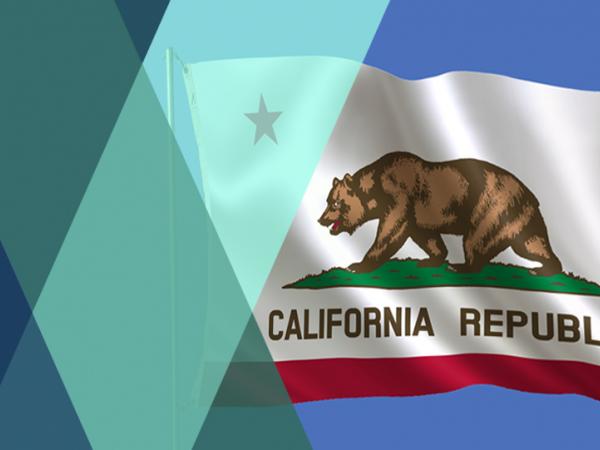
Privacy & Cybersecurity
Viewpoints
Filter by:
FCC Proposes Changes to its Reporting Requirements for Customer Data Breaches
January 12, 2023 | Advisory | By Angela Kung, Jonathan P. Garvin
OCR Warns Providers Against Disclosing PHI on Social Media Platforms in Response to Negative Reviews in Settlement with Dental Practice
December 22, 2022 | Blog | By Lara Compton, Kathryn Edgerton, Pat Ouellette
As illustrated by a recent Office for Civil Rights (OCR) settlement with a dental practice, health care entities continue to struggle with how to respond to negative online reviews while maintaining compliance with the HIPAA Privacy Rule. Given the significant reputational harm that negative reviews on Yelp and other social media and public platforms (Platforms) can create, providers may be tempted to respond to such negative comments with patient specifics in an attempt to mitigate harm to their businesses.
Webinar Recording: Navigating Today's Privacy Compliance Landscape
December 14, 2022 | Webinar | By Cynthia Larose
The privacy compliance landscape has changed significantly in 2022. These acronyms have joined the CCPA, HIPAA, and GDPR in the privacy alphabet soup: CPRA, VCDPA, CDPA, CPA, and UCPA. Do you know what they all mean for your company and what they will require in order to be compliant?
New EU-US Data Privacy Framework
December 13, 2022 | Blog
The European Commission has published its long-awaited draft of the new EU-US Data Privacy Framework, available here. The Data Privacy Framework will replace the Privacy Shield decision that was invalidated in July 2020 by the Schrems II decision. President Biden’s recent Executive Order paved the way for the new Data Privacy Framework by creating a significantly more robust right of redress for people in the EU, along with stronger guardrails and greater oversight for US intelligence agencies’ data privacy compliance.
Is Your Website Collecting PHI Under OCR's New Tracking Technologies Bulletin?
December 7, 2022 | Blog | By Dianne Bourque, Lara Compton, Kathryn Edgerton, Cassandra Paolillo, Kate Stewart
Covered Entities and Business Associates should promptly and carefully review their use of online tracking technologies on their websites and mobile apps following a bulletin (Bulletin) published by the U.S. Department of Health and Human Services’ Office for Civil Rights (OCR) last week. The Bulletin addresses multiple facets of compliance with HIPAA when using online third-party tracking technologies (Tracking Technologies). In doing so, OCR significantly expands its interpretation of the definition of Protected Health Information (PHI) to include, in some instances, identifiable information gathered by Tracking Technologies where a user visits a website and does not interact with the entity in any other way. In its Bulletin, OCR interprets the act of an individual visiting a website as evidence of a relationship or anticipated future relationship between the visitor and the entity.
JUST A REMINDER: Refresh Your Standard Contractual Clauses!!
November 29, 2022 | Blog | By Cynthia Larose
If you haven’t already got December 27th on your calendar, it’s the deadline for updating your documentation for transfers of personal data from the European Economic Area (EEA) to other countries – including the United States. Read our blog post regarding this issue and contact the Mintz Privacy Team if you need assistance.
DOJ Charges 10 Defendants for Allegedly Defrauding Public and Private Health Insurers Out of $11.1 Million Through Business Email Compromise Schemes
November 28, 2022 | Blog | By Kathryn Edgerton
This post provides insights and recommendations surrounding the DOJ's charges against 10 defendants involved in business email compromise schemes.
Google Pays Record Privacy Settlement as Lawsuits are Expected to Rise
November 22, 2022 | Blog | By Adam B. Korn, Sebastian Navarro, Todd Rosenbaum
In what is considered the largest privacy-related settlement in history, Google will pay $391.5 million to 40 states to settle an investigation by 40 state attorneys general. The bipartisan coalition of attorneys general alleged that Google misled users into believing that opting out of sharing their location data prevented the company from tracking users’ locations.
NYC Proposes Rules in Advance of 2023 Automated Employment Decision Tools Law
November 4, 2022 | Blog | By Corbin Carter, Michelle Capezza, Evan Piercey
Effective January 1, 2023, New York City employers will be prohibited from using artificial intelligence in employment decision-making processes unless they take a number of specific and affirmative steps prior to doing so, including a bias audit of the tool. These requirements have emerged following the passage of New York City Local Law 144 in December 2021, which creates a specific regime employers must adhere to in order to utilize automated employment decision tools, which the City has referred to as “AEDTs”. Many questions emerged following the passage of Local Law 144 and in response to some of these inquiries, the City’s Department of Consumer and Worker Protection (“DCWP”) has proposed rules that provide some answers, expand upon Local Law 144, and regulate the use of AEDTs. Mintz attorneys Corbin Carter, Michelle Capezza and Evan Piercey analyze and discuss these proposed rules.
SEC Adopts Amendments Requiring Electronic Filing of Forms 144
November 2, 2022 | Alert | By Hannah L. Karraker
Read about how the SEC’s adoption of an electronic filing mandate for certain documents, including all Forms 144 for the sale of securities by US public company issuers, could impact public companies.
“Ding Dong” -- FTC-Drizly Data Breach Settlement Will follow CEO Personally for a Decade
October 28, 2022 | Blog | By Christopher Buontempo , Cynthia Larose
California Privacy Rights Act: Key Compliance Tasks for Employers
October 17, 2022 | Alert | By Cynthia Larose
Read about how the California Privacy Rights Act (CPRA) will eliminate an exemption that allows employers to exclude some employee and applicant personal information from the reach of the California Consumer Privacy Act (CCPA) as of January 1, 2023.
EU Personal Data Transfers Deadline: New SCCs must be put in place by December 27, 2022
October 5, 2022 | Alert
Many organizations uses the European Union’s Standard Contractual Clauses (SCCs) to govern their transfers of personal data from the European Economic Area (EEA) to other countries. Some organizations have ongoing transfers that started before the new SCCs became effective in June 2021. Generally, ongoing transfers can continue to be made under the old SCCs until the grace period expires on December 27, 2022. That’s the date upon which any new SCCs-based transfers must be done under the new version of the SCCs.
The Sun is About to Set on Temporary CCPA/CPRA Exemptions: Employers Get Ready
September 14, 2022 | Blog | By Cynthia Larose
If you’ve relied on the temporary “exemption” for employee/applicant and business-to-business (B2B) personal information under the California Consumer Privacy Act (CCPA), those exemptions will expire on January 1, 2023. The California legislature adjourned on August 31 for the 2022 session without adopting legislation to extend those exemptions, and therefore, absent a special legislative session, they will sunset on December 31.
California Assembly Passes Sweeping Age-Appropriate Privacy Legislation
September 6, 2022 | Blog | By Kevin Hiraki, Cynthia Larose
California is leading the way on privacy regulation --- again. The California State Assembly has passed AB 2273, which, if approved by the California Governor, would require businesses that provide online services, products, or features likely to be accessed by children or teens under the age of 18 to increase their privacy and safety protections.
First California AG Enforcement Action Under CCPA – And It’s a Big One
August 24, 2022 | Blog | By Cynthia Larose
California Attorney General Rob Bonta has announced a major settlement under the California Consumer Privacy Act (CCPA), and it will cost Sephora, Inc. a whopping $1.2 million in penalties. Pay attention to your email boxes: in addition to announcing the Sephora settlement, AG Bonta also said that his office today sent notices to “a number of businesses alleging non-compliance relating to their failure to process consumer opt-out requests made via user-enabled global privacy controls, like the GPC.”
“Commercial Surveillance” Questions Take Center Stage at the Federal Trade Commission
August 18, 2022 | Blog | By Michael Goldberg, Cynthia Larose
The central tradeoff between a service’s affordability and the user’s right to privacy has been debated for the better part of two decades. The quickest jolt to the regulatory landscape may come via Federal Trade Commission (“FTC” or the “Commission”) enforcement. On August 11, the FTC issued an Advanced Notice of Proposed Rulemaking (“ANPR” or the “Notice”), asking the public to weigh in on whether new regulation is required to protect consumers and crackdown on “commercial surveillance.”
California Privacy Protection Agency Unanimously Opposes the American Data Privacy and Protection Act
August 4, 2022 | Blog | By Cynthia Larose, Kevin Hiraki
The new California privacy regulatory body, the California Privacy Protection Agency (CPPA), has loudly voiced its opposition to the proposed federal American Data Privacy and Protection Act (ADPPA). The bottom line for the unanimous opposition: the ADPPA would preempt California’s privacy laws – both the California Consumer Privacy Act and the California Privacy Rights Act effective as of 1/1/23 – and establishes a ceiling on privacy regulation by states.
New York Attorney General: Data Breaches Will Cost You
August 1, 2022 | Blog | By Michael Graif
Recent enforcement actions reveal that New York is among the states leading the way in investigating and fining corporations for both actual and potential data breach situations. Within the past month alone, Attorney General Letitia James (“NYAG”) secured monetary settlements and consent agreements from two large corporations who failed to maintain adequate administrative, technical and physical safeguards as required by New York law.
Explore Other Viewpoints:
- Data Centers & Digital Infrastructure
- AI: The Washington Report
- Antitrust
- Appellate
- Arbitration, Mediation & Alternate Dispute Resolution
- Artificial Intelligence
- Awards
- Bankruptcy & Restructuring
- California Land Use
- Cannabis
- Class Action
- Complex Commercial Litigation
- Construction
- Consumer Product Safety
- Corporate Governance (ESG)
- Cross-Border Asset Recovery
- DEI Legal Developments
- Debt Financing
- Direct Investing (M&A)
- Diversity
- EB-5 Financing
- Education & Nonprofits
- Employment
- EnforceMintz
- Environmental (ESG)
- Environmental Enforcement Defense
- Environmental Law
- Environmental, Social, and Corporate Governance (ESG)
- FDA Regulatory
- False Claims Act
- Federal Circuit Appeals
- Financial Institution Litigation
- Government Law
- Growth Equity
- Health Care
- Health Care Compliance, Fraud and Abuse, & Regulatory Counseling
- Health Care Enforcement & Investigations
- Health Care Transactions
- Health Information Privacy & Security
- IP Due Diligence
- IPRs & Other Post Grant Proceedings
- Immigration
- Impacts of a New US Administration
- Insolvency & Creditor Rights Litigation
- Institutional Investor Class Action Recovery
- Insurance & Financial Services
- Insurance Consulting & Risk Management
- Insurance and Reinsurance Problem-Solving & Dispute Resolution
- Intellectual Property
- Investment Funds
- Israel
- Licensing & Technology Transactions
- Life Sciences
- Litigation & Investigations
- M&A Litigation
- ML Strategies
- Medicare, Medicaid and Commercial Coverage & Reimbursement
- Mergers & Acquisitions
- Patent Litigation
- Patent Prosecution & Strategic Counseling
- Pharmacy Benefits and PBM Contracting
- Portfolio Companies
- Privacy & Cybersecurity
- Private Client
- Private Equity
- Pro Bono
- Probate & Fiduciary Litigation
- Products Liability & Complex Tort
- Projects & Infrastructure
- Public Finance
- Real Estate Litigation
- Real Estate Transactions
- Real Estate, Construction & Infrastructure
- Retail & Consumer Products
- Securities & Capital Markets
- Securities Litigation
- Social (ESG)
- Special Purpose Acquisition Company (SPACs)
- Sports & Entertainment
- State Attorneys General
- Strategic IP Monetization & Licensing
- Sustainable Energy & Infrastructure
- Tax
- Technology
- Technology, Communications & Media
- Technology, Communications & Media Litigation
- Trade Secrets
- Trademark & Copyright
- Trademark Litigation
- Unified Patent Court (UPC)
- Value-Based Care
- Venture Capital & Emerging Companies
- White Collar Defense & Government Investigations
- Women's Health and Technology










